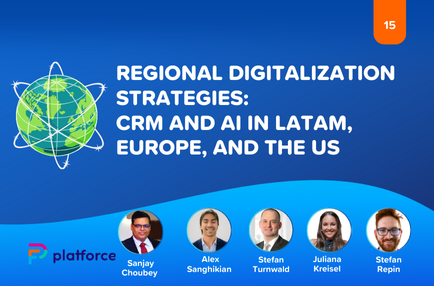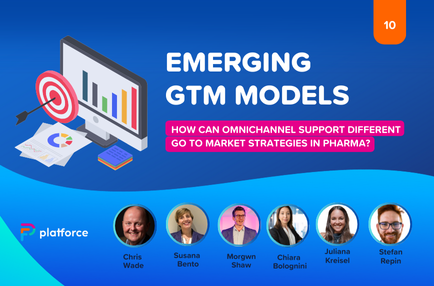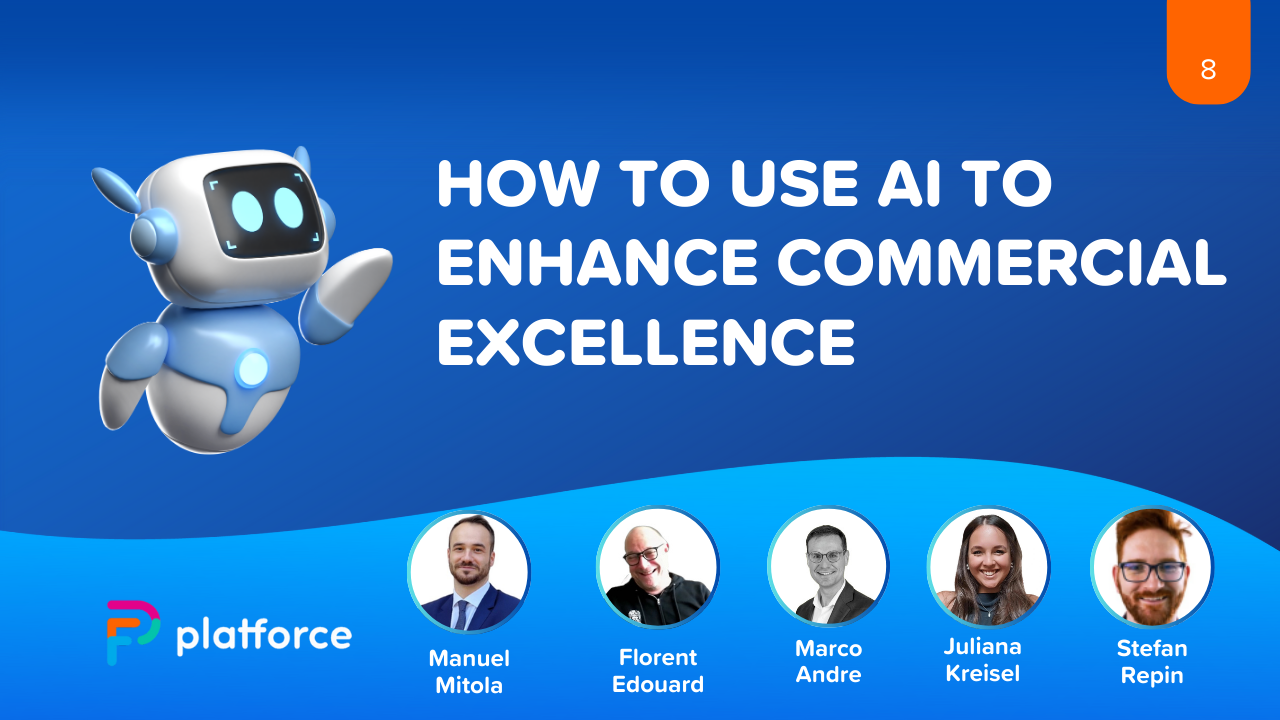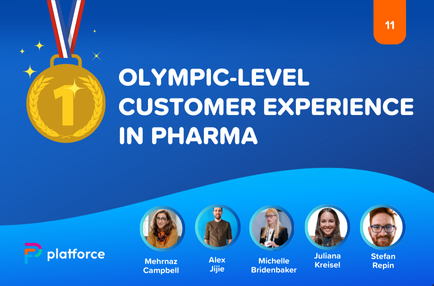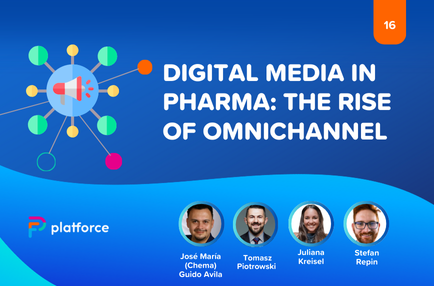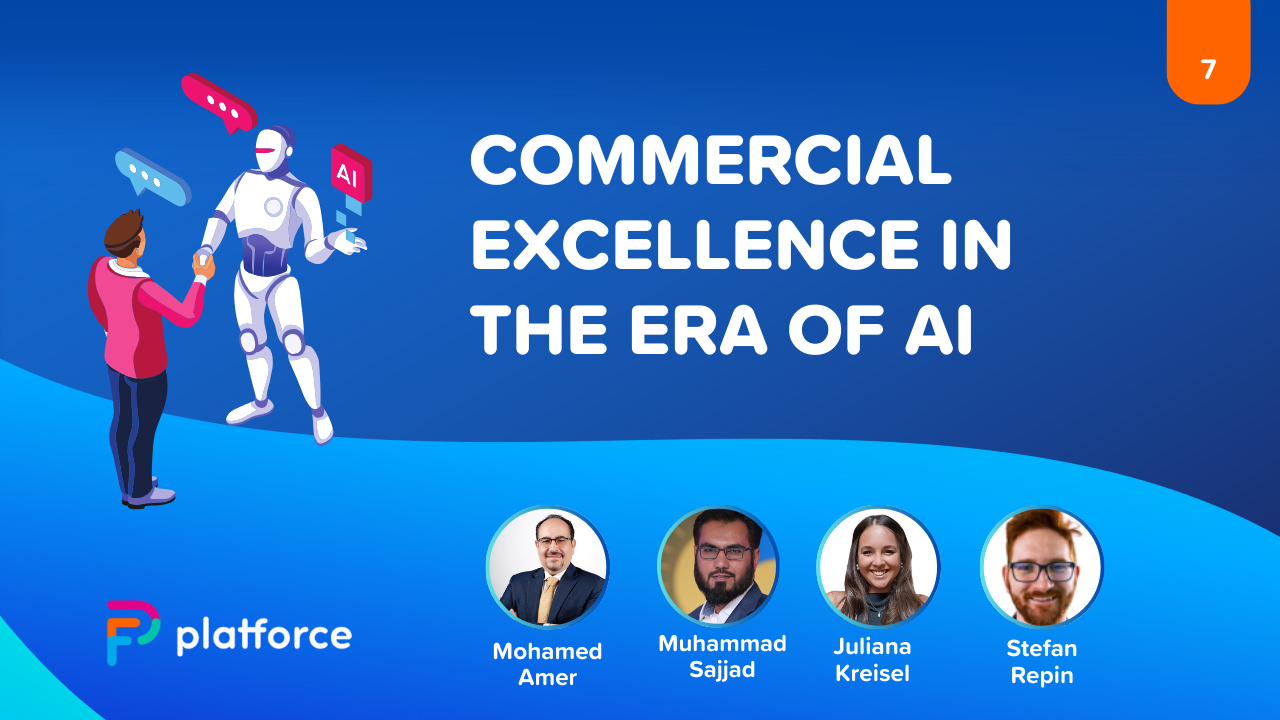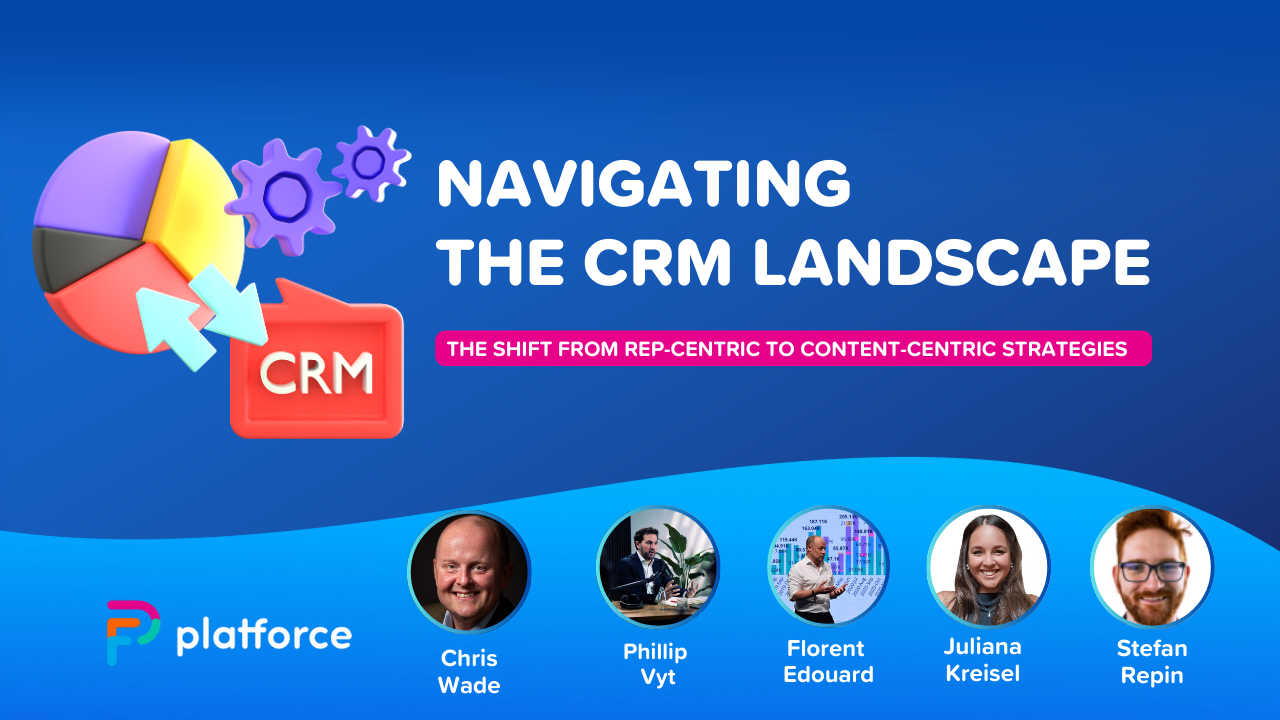A field force is a group of professionals responsible for external operations, often involving direct interactions with customers. Despite the importance of having such a team for organizations aiming to attract more clients, gain market insights, and adapt to the ever-changing needs of customers, managing field force effectiveness can be quite a challenge.
In this article, we will discuss how efficient management can positively impact not only business operations but also field force performance and contribute to the well-being of each team member. Let’s jump right into the conversation, starting with the basics.
What is Field Force Performance?
Field force, field sales force, or field team is a term commonly used for a group of employees who work with clients “in the field.” Typically, field force teams consist of people responsible for making sales and generating leads, and their roles are brand ambassadors, sales specialists, service specialists, and many others. All of them are field workers who have a direct connection with customers, either online or offline.
Field force performance refers to the level of efficiency a field force has achieved over a period of time. Performance depends on such factors as the effectiveness of field force management, adherence to protocols and rules, data accuracy, customer feedback, and others.
The stronger the field force team’s performance, the better they represent the company. High-performing teams don’t just reach the right people at the right time—they actively drive growth in the market.
What is even more important is that field force teams play a huge role in many industries. For example, in pharmaceuticals and healthcare, improving field force performance directly enhances the effectiveness of HCP marketing efforts, as better-prepared teams are able to foster stronger relationships with healthcare professionals.
Who Is in Charge of Field Force Performance, and What Can They Do?
Usually, there are a few people responsible for field force management and performance. Of course, sales team members take the biggest responsibility for their sales performance and effectiveness. However, others may oversee field force performance as well, and the list of those responsible includes sales managers, field force managers, sales directors, and regional managers. Here is what they can do:
- Set KPIs for field force workers and track key metrics.
- Monitor task completion.
- Endorse continuous training and learning.
- Find reasons for poor performance.
- Provide tools for delivering outstanding results.
- Ensure clear communication among team members and with customers.
- Motivate workers with incentives.
- Enable feedback loops.
Field force management might include other responsibilities, depending on the company’s goals, resources, and operational structure.
Field Force Performance Strategy for SMBs
There are many strategies for small and medium-sized businesses that can help them boost their field force performance and achieve operational excellence. Let’s take a look at the most effective ones:
Set clear goals
Start by defining measurable KPIs that are easy to understand and track. You don’t want your team to go into a client’s meeting or an important presentation without knowing what they should strive to achieve during it. Make sure your specialists understand what they should achieve within a certain time frame, whether it is one work day, week, or month. Here are some ideas for KPIs:
- Daily/weekly visit targets
- New customer acquisition
- Customer satisfaction rate
- Product coverage
- New leads in the pipeline
- Customer lifetime value
These are just some of the few indicators your team can monitor to better understand their performance and what they could improve. Start with a few KPIs first, and scale as your team grows and gets used to tracking different performance indicators.
Focus on smart field force management solutions
Before assigning your team to any clients or tasks, first make sure you know every team member’s potential, expertise, experience, and location (if needed). After a thorough analysis, you will be able to determine who should be working based on the customer potential, geography, verticals, and other factors. Use different tools to plan out future meetings, tasks, and projects, as well as to make it easier for your field force team to check what they will be working on next. Even just a simple Excel spreadsheet neatly organized can be a life-saver — all it takes is some planning and analyzing before jumping right into assigning customers and tasks.
Make sure your team has access to all the necessary tools
One of the biggest issues many field force teams are facing is the lack of proper documentation during field operations, customer interactions, and other activities that happen during the day. Even though a lot of communication with clients is currently happening online, many companies are still dealing with the lack of transparency and delays between day-to-day activities and final reports. Here are some easy-to-use tools that can help increase field force productivity and provide seamless communication within the team and with the clientele:
- User-friendly CRMs like Platforce
- Google Sheets
- Evernote
- Notion
- Otter.ai
- Calendly
- AudioNote
There are many tools and platforms that can completely transform the daily routine for both field force workers and their managers. To find the right fit, research your options and choose 2–3 tools that best align with your business model.
Create a training course and materials for self-study
Being a part of a field force team comes with a lot of responsibilities, one of which is always staying up to date with current trends, regulations, events, and innovations. From understanding the pitch structure to knowing all the latest changes in the industry, there is a lot a field force worker has to keep in mind. It’s up to the employer to provide all the necessary materials to prepare for their future interactions with customers. Some of the educational materials you could offer are playbooks, online courses, short guides, articles, and videos.
Collect feedback directly from the team
Don’t hesitate to check in with your field force team about their performance. Be direct — ask how their customer interactions went and what they thought of them. Create space for open discussion around challenges and encourage the team to share any obstacles they’ve faced. Make it clear that even if something goes wrong, there won’t be any punishment. Instead, mistakes will be treated as opportunities to learn and grow. Use all these insights to tweak the communication with the customer, enhance presentations, and fine-tune your strategy for improving field force management and performance.
What Tools to Use for Improved Field Force Performance?
As we said before, having access to proper tools and software is crucial for the success of a field force team. Here are some examples of the best tools for field force:
Task & activity management
Programs that allow you to track tasks can help you coordinate better within the team and determine the best pace for your employees.
Recommendations: Jira, Asana, Notion.
Location tracking & route optimization tools
If your team is constantly on the move, going from one client to another, you definitely spend a lot of time planning the trips and finding the best routes for more efficient travel. From fuel costs to time spent on the road, everything must be taken into account.
Recommendations: Route4Me, Google Maps.
CRM & sales tools
With good customer relationship systems, it will become much easier to manage your teams, understand how to improve their efficiency, and make every interaction with a client more meaningful and consistent.
Recommendations: Platforce.
Sales enablement platforms
These are crucial for all teams, as these platforms help field force workers learn more about field service, their duties, the skills they need to learn, and other important things. In other words, these are platforms for training, coaching, and onboarding.
Recommendations: HubSpot Sales Hub, Salesforce Sales Cloud.
Communication apps
Effective communication lies at the heart of any successful field force strategy. Managers can use these platforms to provide clear instructions on how field workers should operate, while employees can exchange ideas and share insights about each customer interaction.
Recommendations: Slack, Microsoft Teams.
Reporting & Documentation
Software for reporting makes the process of tracking and analyzing all sorts of activities faster and much more efficient. If you would like to be able to keep track of various expenses, sales, leads, etc., having a good reporting software is a must.
Recommendations: Platforce, Google, Microsoft Lens.
Monitoring vs. Enhancing Field Force Performance
Monitoring and enhancing field force effectiveness are two different processes aimed at improving the overall performance of field force teams. Let’s break down the key differences:
Monitoring
Monitoring involves tracking the field force team’s activities and recording their outcomes. Often, it does not require direct involvement in the team’s day-to-day operations; this process is focused on observation rather than action. However, monitoring field force performance helps identify problematic areas and bottlenecks and prevent potential issues from happening.
Focus areas:
- Daily check-ins
- Time spent per client
- KPIs and sales figures
- Real-time tracking
- Reports reviewing
- Identifying red flags early on
Enhancing
Enhancing involves actively supporting the field force team in their tasks and ensuring that each member has the resources they need to grow and improve. Rather than simply observing, those responsible for enhancing field force performance take proactive steps to improve not only how the team interacts with clients but also how they communicate, prepare, learn, and carry out their daily responsibilities.
Focus areas:
- Equipping the team with all the right tools
- Real-time support
- Regular training
- Performance feedback
- Rewarding achievements and milestones
- Process optimization
- Skill development
- Knowledge sharing
Should you monitor or enhance your field force performance?
To sum it up, monitoring tells you what’s happening, and enhancing focuses on how to make it better. To achieve the best results, it’s best to combine both approaches to field force management, since both cover various aspects of boosting productivity and improving performance. If you would like to achieve the best efficiency levels possible, focus on both monitoring and enhancing your team’s performance.
Overcoming Common Performance Barriers
Every day, both field force managers and workers face multiple challenges that hinder their work process. Here are some of the most common performance barriers and how to overcome them:
Lack of real-time visibility
Effective field force management cannot happen without being able to monitor the team’s performance in real-time, at least occasionally. However, in the case of field force workers, it is unfortunately sometimes almost impossible to realize this for traditional field force management. Real-time visibility allows both managers and field force workers to make more informed decisions, evaluate the field staff performance better, and quickly identify delays and issues. The lack of visibility often leads to a disconnect between what’s happening in the field and how it’s perceived by management.
Solution: The implementation of advanced field force management software is the best solution in this case, as modern technology enables real-time tracking of field force performance without causing any disturbance for either the clients or field force workers.
Poor communication
Fragmented communication between field workers and managers often leads to misunderstandings, delays, and poor performance. Managers lack a clear understanding of what’s happening in the field, while workers are left without clear guidelines on how they should operate. Moreover, communication with clients also suffers from unclear messages between managers and staff, which might lead to fewer leads and sales.
Solution: Using centralized communication channels that are accessible to all team members and establishing regular check-ins, meetings, and briefings. Some examples of tools for creating such channels are Slack, Microsoft Teams, Zoom, and Google Meet.
Low team morale
Even if all tasks are completed efficiently, every client is ready to make a purchase, and everything seems to be going fine, it’s still possible that your team might not be happy and eventually lose interest in their job. This problem might stem from other issues we have already discussed, as well as heavy workloads, burnout, repetitive tasks, lack of support and/or recognition, and others. According to the IBM study, more positive employee experiences lead to double the amount of discretionary effort, meaning that increasing team morale has a positive impact on the effectiveness of performance.
Solution: If you want your team to always be at their best, focus on celebrating small wins over big victories. You want to encourage your employees to feel good about themselves, which cannot happen if they receive praise just a few times per year. Recognize their achievements, reward them based on their performance, and make sure that everybody knows that they can rely on their management to support their growth.
Conclusion
No doubt, ensuring that your team is always at its best is no easy task. However, with the right tools, you will be able to support your team at all times, providing all the means for self-improvement and growth within your company. If you are looking for a solution that reduces costs, improves decision making, and enhances field force performance, look no further: our team of specialists at Platforce is ready to provide you with everything you need. Contact us to get started with your new tool for everything your field team needs right now.



